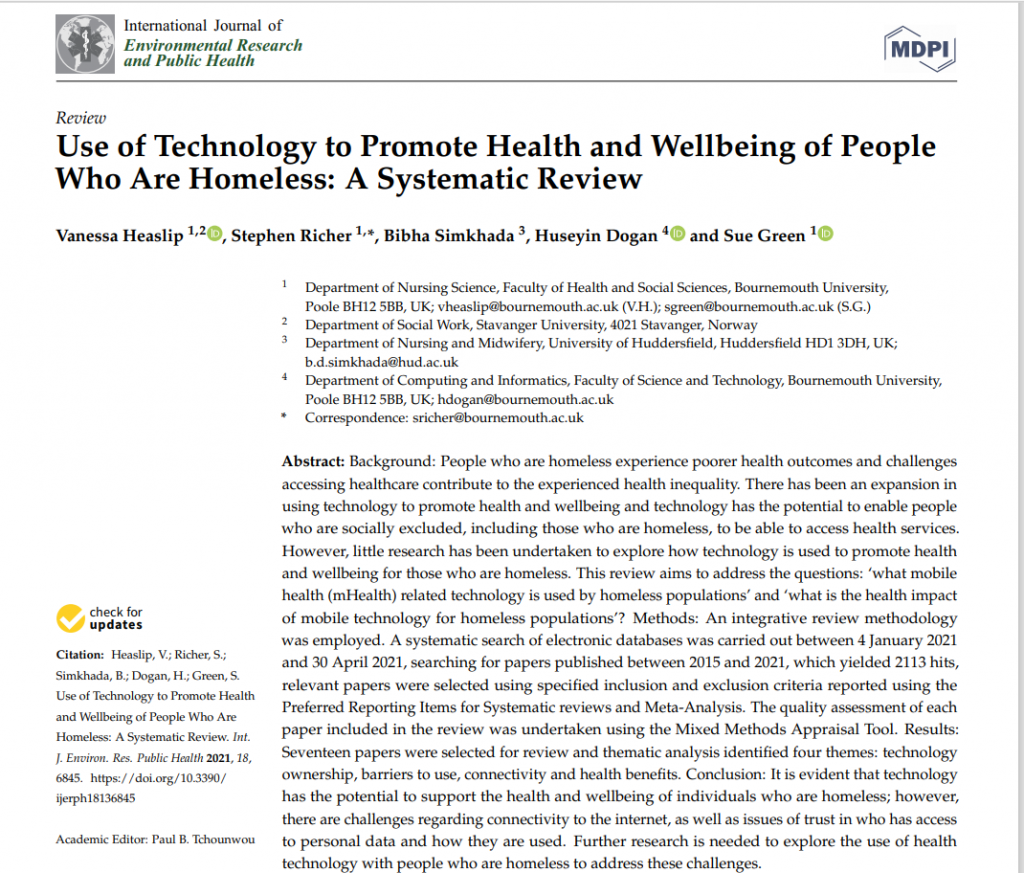The expected deluge of summer regulatory news is still a trickle, but one outstanding consultation has reported – the one on monetary penalties, which no-one hopes to have to deal with. The Skills and Post-16 Bill began the Committee stage with interesting debate and the continued criticism of what is lacking; Lord Storey’s essay mills bill was warmly received in its second reading by a small group of attending Lords; UCAS data shows growth in applications and offer making for new entrants; Nicola Dandridge remains as Chief Executive of the OfS (for now); there is Life Sciences news; and the Government announcements unlocking the Covid restrictions permit face to face teaching, for now, anyway.
Skills and Post-16 Education Bill
The Skills and Post-16 Education Bill entered the Committee stage. You can read the full debate or we bring you the most relevant HE discussion below. All amendments debated were either withdrawn or not moved, however, the content of the discussions is useful and interesting and Government advisers will have taken note of the points raised and general feeling within the Lords chamber.
- Amendment 1 sought to ensure that the interests of students whose needs were not encompassed by local employers were included within the Bill…a strong link between local business and local skills provision were a good idea, but the interests of potential students were missing.
- A request that providers of distance learning were taken into account when creating local skills improvement plans…the likes of the Open University had been “a life-changer for many who could not study residentially.”
- Amendment 22 (Lord Addington) aimed to ensure special education needs provision was included in the initial planning of courses and training…a key benefit…would be in helping them to identify those in high-needs groups, and provide the relevant support. And Amendment 26 sought to ensure those with SEND would be supported to look further afield than their local area, to find appropriate careers that were more comfortable to them.
- Baroness Fox of Buckley’s major concern with the Bill was that “it focuses too narrowly on the skills required by local employers,” which she said could narrow the options for students. She stated that agreed with the Chief Executive of the Workers’ Educational Association who has stated that Bill was “quiet on support for any qualifications below Level 3″, which “offer many adult learners key progression routes.” Also that the Bill did little to support subjects outside a narrow band of technical disciplines.
- Defending the Bill on behalf of the Government, Parliamentary Under-Secretary of State (DfE and DTI), Baroness Berridge, said the Bill was much wider than just the technical education part that formed the “central plank” of the local skills improvement plan… the Bill did not exclude any particular level of qualification. The limiting was the technical education section of what the providers in a local area would have due regard to when they considered the local skills improvement plan.
- Lord Aberdare (CB) cited a 2019 report by Future Founders that revealed that 51 percent of British young people aged 14 to 25 had thought about starting, or had already started, a business. He said that the Bill should address their needs, and not focus only on the skills need of existing employers.
- Lord Young (Lab) said he was fascinated to learn that students applying to UCAS were not just given the opportunity of university places but directed towards apprenticeships.
- Baroness Berridge (Government representative) added that the designated employer body would need to engage and work closely with providers, which included the Careers and Enterprise Company, local careers hubs, the National Careers Service, area-based contractors and Jobcentre Plus. She continued that they were currently contemplating two study programmes specifically designed to prepare young people for employment: traineeships and supported internships.
- Baroness Hayman (CB) moved Amendment 3, which would ensure that when considering whether post-16 technical education or training was “material” to a specified area, consideration had to also be given as to whether such future skills, capabilities or expertise align with the UK’s net zero She added that an estimated 3.2 million workers in the UK needed to increase their skill level or retrain in a new qualification if the UK was to meet its net zero target, and if they were to get the jobs that would be available.
- Baroness Bennett of Manor Castle (GP) moved Amendment 4 (to Amendment 3), which would ensure that when considering whether post-16 technical education or training is “material” to a specified area, consideration must also be given as to whether such future skills, capabilities and expertise aligned with biodiversity targets.
The above two points illustrate the frequent criticism that the Bill did not offer more content linked to the climate and ecological emergency. Moreover:
- The Liberal Democrat Lords Spokesperson for Energy and Climate Change, Lord Oates, stated that the local dimension was often missing from thinking on net zero. Baroness Wilcox of Newport, there was currently not a single reference to climate considerations in the Bill. Baroness Berridge offered assurance that the Government took net zero skills seriously, and there would not be a green gap in the guidance. She stressed that net zero, green technology and decarbonisation were common themes in the proposals that Government had received from the employer representative bodies seeking to lead the local skills improvement panel trailblazers. She added that the expectation was that the guidance issued by the Secretary of State under Clause 1 would reflect zero-carbon goals as businesses and employers responded to climate change and the biodiversity agenda.
- Opposition Spokesperson for Education Lord Watson of Invergowrie warned – Although we fully support the principle of employers playing a more active role in driving certain aspects of the skills system, as well as a more specialised role for FE colleges in delivering higher-level technical skills, that must take place within the context of a holistic and objective overview of the whole education, skills and employment support system, to guard against introducing further complexity.
- Baroness Berridge (Government representative) told the chamber that the local skills improvement plans would set out the key changes needed for post-16 technical education training, and make it more responsive to employers’ needs. Addressing some of the amendments, she said that “the relevant providers will play an important role, working with the employer representative bodies to develop these plans. We have not taken them out of the picture; the duty is there to co-operate.”
Wonkhe explain about the Local Skills Improvement Plans (LSIPs): Though the committee was not divided, speaking on behalf of the government, Baroness Berridge confirmed providers (including distance learning providers like the Open University) will be able to participate in multiple LSIPs. We also learned that the six-to-eight “trailblazer” LSIPs, from 40 bids, would be announced later this month and will run until 2022.
The Bill will be debated at Committee Stage again on 15 and 19 July.
Contract Cheating
Lord Storey’s Private Member’s Bill (PMB), the Higher Education Cheating Services Prohibition Bill, completed the second reading stage on 25 June with support and warm words from a small group of peers and the Minister.
Lord Storey currently has an amendment lodged to the Skills Bill, it wasn’t chosen for debate this week. We’ll wait to see if it comes up in the two remaining days of the Bills’ Committee stage. If it is it’ll give us an indication of the wider parliamentary mood for the abolition of essay mills. If his amendment succeeds (in some form) he’ll likely withdraw his PMB. Or it may go the other way, and the amendment be dropped in favour of another measure. PMBs rarely make it onto the statue book because of shortage of time, but this time government support may help it go further.
The second reading discussion also clarified that while contract cheating may also be taking place during A levels the Minister favours confining the Bill to HE. Whilst the tone of the second reading was favourable there is still a long road the Bill needs to traverse. You’ll also note in the Minister’s response below that emphasis is placed on HE institutions to addressing contract cheating.
Excerpts from Minister’s response:
- It is clear that there is a strong case for supporting institutions to address this matter robustly. We have much sympathy with the noble Lord’s aims through his Bill and would welcome further discussion with him about it.
- Some of the Bill’s provisions need careful attention…he has brought forward the Bill in the spirit of seeking to find a solution to the problem…It has the potential, particularly as part of a wider approach, to reduce the number of essay mills in operation. It would also send a clear sign to students and the companies themselves that this activity is illegal.
- Some noble Lords mentioned the international action that has been taken…Emerging evidence in both those jurisdictions suggests that those laws are deterring essay mills from providing services to students, and regulators there have reported that having the legislation has provided them with more tools to engage students, higher education providers and cheating services, and that it has given them additional routes to tackle the problem.
- It is an important and timely Bill that needs to be considered carefully to maximise its effectiveness but, alongside a continued and collaborative effort with the sector to deter, detect and address contract cheating, it is one that could enable us to face the problem head-on.
Meanwhile Research Professional states that universities have been warned that essay mills are targeting institutions’ websites in a bid to reach students, which could put the “reputation and integrity” of universities at risk.
Research
UKRI Chair: The House of Commons Science and Technology Committee supported the appointment of Sir Andrew Mackenzie for the role of Chair of UKRI (report). The Committee concludes that, on the basis of the discussions during the pre-appointment hearing, its consideration of his CV, and the answers he provided to the Committee’s questionnaire, Sir Andrew’s career provides him with the professional competence and many of the skills required for the role of Chair of UK Research and Innovation. The Committee raises concerns that a robust process should be put in place to manage any actual or perceived future conflicts of interest between the role of Chair of UKRI and Sir Andrew’s part-time role as Chair of Shell.
Life Sciences: The Government published a new UK Life Science Vision setting out a 10-year strategy for the sector to build on successes achieved during the pandemic. The Vision outlines 7 critical healthcare missions for Government, industry, the NHS, academic and medical research charities:
- Accelerating the pace of studies into novel dementia treatment
- Enabling early diagnosis and treatments, including immune therapies such as cancer vaccines
- Sustaining the UK’s position in vaccine discovery, development and manufacturing
- Treatment and prevention of cardiovascular diseases and its major risk factors, including obesity
- Reducing mortality and morbidity from respiratory disease in the UK and globally
- Addressing the underlying biology of ageing
- Increasing the understanding of mental health conditions, including work to redefine diseases and develop tools to address them
A central component of the vision is that it contains a focus on cultivating a business environment which will allow UK life science firms to access finance to innovate and grow; and are incentivised to onshore manufacture and commercialise their products.
To support the vision, the Government has launched a £200m Life Sciences Investment Programme and expects the programme to leverage further private sector investment. Dods tell us that new funding will also come from Abu Dhabi’s Mubadala Investment Company, which has committed to invest £800m to the life sciences industry, working with British Patient Capital.
The Minister may have changed but the content of the speeches hasn’t – new Health and Social Care Secretary, Sajid Javid, said: We have made immense strides in health research over the past year – the discovery of the use of dexamethasone and our vaccine rollout have been crucial to saving hundreds of thousands of lives and tackling COVID-19. It’s crucial we continue to harness this enthusiasm and innovation, and map out a new route as we build back better. Today’s bold vision commits to putting the lessons we’ve learnt into action to transform the UK into a life sciences superpower.
Life Sciences Minister Nadhim Zahawi said: We want to bottle up this scientific brilliance, and the Life Sciences Vision provides a roadmap for how we apply this innovation at the heart of our NHS helping to solve major health challenges such as dementia and obesity – all while ensuring the UK remains a global leader in life sciences.
Research Professional blog: Focusing life sciences policy on medicine would miss huge opportunities in other fields, says Neil Hall.
ARIA: Recruitment for the first Chair of the Advanced Research and Invention Agency (ARIA) has begun with a focus on management over research experience. In their scrutiny of the full Bill text, MPs were keen to ensure clear measures of transparency were in place for the head of the new agency, and that there could be no room for conflicts of interest. The chair will act as a “custodian for Aria’s mission and objectives,” and be responsible for supporting overall direction and management, ensuring that the board takes an effective governance role. It adds that it is vital that any applicant is an “experienced board member”, among a list of other management-focused essential criteria. But “experience in public or private sector R&D” is only listed as desirable. It is a 4-5 year appointment (2 days a week, £60k). The ARIA Bill itself is still awaiting a Second Reading date for its procession through the House of Lords, so far a one month delay.
Science minister Amanda Solloway said whoever is appointed “will have the opportunity to make history” as the holder of one of ARIA’s pivotal roles: “We are looking for someone who commands the confidence of academic, business, higher education and policy communities, promote[s] effective stakeholder engagement, guide[s], and challenge[s] the development of Aria’s organisational approach.”
Ethics Appointment: Felicity Burch has been appointed executive director of the Centre for Data Ethics and Innovation.
Admissions – applicant data
UCAS released interactive data for applications made to the 30 June 2021 deadline highlighting increased offer making and application levels. Searches for apprenticeships also continue to rise. There were 456,190 18 year old applicants to English institutions. Overall, a total of 682,010 applicants (+4% on 2020) made 2,955,990 applications (+6%), resulting in 1,998,690 offers (+3%).
Also reported is that UCAS’s CareerFinder, which helps students find jobs and degree/higher apprenticeships, saw a record 1.35 million searches in the last 12 months, up 37% from 986,000 in 2020. These searches have resulted in 225,000 job applications, an increase from 181,000 last year (+24%). You’ll want to play with the data as it offers all these additional granular options.
Research Professional’s Admission Control interprets the data excellently. The piece quickly reminds us of the history of how students bear the financial burden for funding HE institutions and the associated decline in the teaching grant over the year; it touches on grade inflation in school results, explains the jump in applicant numbers, and that applications to the higher tariff and more selective institutions increased – reminding that some institutions will likely be losers despite the greater numbers intending to enter HE. Also:
- The bigger problem may be shifts within institutions, with healthcare, for example, a growing part of the post-1992 portfolio; while the arts and social sciences are retreating into high-tariff institutions, with corresponding departmental closures elsewhere.
Confirmation and clearing are expected to be different this year:
- With more cautious offer-making this cycle, higher-tariff universities may well be filling their places with applicants who have made them their firm first choice, and have less room for recruitment of school leavers in clearing…If awarded grades are much closer to predicted grades than in a year when in-person examinations were held, we might anticipate more school leavers’ places being settled in confirmation than in clearing.
Data HE also make an interesting point: because the main Ucas deadline in January was disrupted and moved to a later date, the figures this year give “a fuller picture of demand” than in previous years…while total offers were up, the offer rate to 18-year-olds appeared to be down—which…would be “the first fall of the post-2012 era”…This was “driven by a five-point collapse in the offer rate from higher-tariff providers, probably back to levels we last saw seven or eight years ago”. “These universities are responding the best they can to the twin pressures of surging applications and unprecedented uncertainty in the [A-level or equivalent] awarded grades…Even with their trimming back of offers, and probably harsher offer conditions too, many will be on full alert for results in August, where another strong increase in grades could be hard to honour in full. With no reason at the moment to expect demand to recede in the 2020s, this downward turn in the offer rate might well be the first chill wind of a harsher world for university applicants. Where the balance of supply and demand is no longer in their favour, and greater flexibility on universities and subjects might be needed to get in.”
On this Wonkhe conclude similarly: Last year saw a sizable increase in applications to higher tariff providers, and this trend continues into 2021. However, even though the number of offers made has also grown, the effect is that the offer rate (the proportion of applications that result in an offer) has dropped – from around 73 per cent in 2019 and 2020 to 68 per cent in 2021. My proposed explanation for this would be capacity – many high tariff providers are already above capacity for 2020, taking too much from the fertile pool that is 2021 starts to put serious pressure on estates and available accommodation.
What the coverage doesn’t raise is the Government’s agenda to divert a proportion of students away from HE into a higher technical route which they believe will be more controlled and meet local and national business and skills needs. The government are also very concerned about the rising cost of the student loan book. If record numbers enrol for September the sector will likely need to brace itself for a fresh wave of criticism from Government as they seek to assert more control and value for money.
Wonkhe offer blogs by UCAS – Rich O’Kelly breaks down the data and says the rise in applications is not all down to Covid-19; and everyone’s favourite HE data guru David Kernohan: More eighteen year olds from China have applied to start a UK undergraduate course in 2021 than eighteen year olds from Wales. And just what is happening with Nigerian mature students.
Excerpts from David’s blog: With youth unemployment at a historic high, you’d be wise to expect an uptick in applications to undergraduate higher education in 2021. And you’d be right. It’s testament to the continuing attractions of university study after a sustained period of barely-disguised ministerial attacks – the application rate in England has hit 43.9 per cent. It also notes the continued decline of EU domiciled applications.
And on the best approach to teaching and the student experience the blog says:
- Playing into a captive market – there’s not many jobs about, placement-related learning and apprenticeships are tricky, travelling is unlikely – we should be wary of complacency regarding the experience of students in a likely Covid-filled autumn. There’ll certainly be no help from government. We should by now have learned what works online and what doesn’t – the planning of contact hours should be the key thing course teams are looking at right now.
- I would argue that the instinct to shift large lectures online is the right one. A combination of the increasing demand for recorded lectures from students, and the still-a-thing pedagogic trend of the split classroom both play in to shifting the mass transmission of information online to prevent the mass transmission of Covid-19.
- The trouble will come in… A sensible pedagogic and public health decision can also look like a decrease in value for money. This effect has already played a part in the “contact hours” debate, and it has certainly been the main colour to the arguments about the lack of face to face this year. In person teaching in small groups is what we should be looking for – ditching the big lecture hall events will have a reputational but not a pedagogic impact.
Access & Participation
Importance of Place: Research Professional report – Chris Millward returned yesterday in a blogpost looking at the impact of “place” on university access. Using an analysis of the OfS’s “associations between characteristics of students” measure, he found that “more than 90 per cent of the lowest-participation group are white students who have been eligible for free school meals or come from the lowest-participation neighbourhoods”. “So income is important, but so is place,” he concluded. You can read the blogpost here. It’s an OfS blog.
Wonkhe: The Office for Students blog has a transcript of Director of Fair Access Chris Millward’s contribution to a Sutton Trust webinar on the factors that affect access to higher education.
And you can read the latest about Chris Millward below in Other news.
Parliamentary Questions:
How to be an ally
Our own Toluwa Atilade (SUBU Vice-President Welfare and Community) and Roshana Wickremasinghe (SUBU Policy Adviser) have written a blog for Wonkhe “Where are the black squares now?” on allyship. They note:
- With the press coverage of the recent Freedom of Speech Bill, it was clear that students’ unions still have a reputation for upholding “cancel culture” through no-platforming, or the use of safe spaces.
- Our commitment to creating a culture of allyship hopefully shows that this is not the case, and that we understand that students and staff are willing to learn more and work on their own biases.
You can find the SUBU allyship hub here.
Post Graduate survey
Wonkhe: The Office for Students has finally published some details about the 2019 trial of a PGT student questionnaire. The regulator learned “valuable lessons” about how the survey operated and how to obtain a robust sample, and has indicated that it will refine the questionnaire to make it more relevant to distance learning and part-time students via some workshops with provider and student representatives. A news story adds that students are keen to share views about course experiences, and that further information will be available by the end of Summer 2021.
More detail is available on the OfS blog: Developing a survey of taught postgraduate students.
International
A parliamentary question: Q – Munira Wilson: To ask the Secretary of State for the Home Department, if she will make it her policy to grant cost exemptions to students who need to extend their visas to complete their course in the UK as a result of the duration of their courses being extended due to the covid-19 outbreak.
A – Kevin Foster: We have no plans to exempt students from paying an application fee where they require further time to complete a course of study.
Wonkhe tell us that The Independent has a piece from Liberal Democrat foreign affairs spokesperson Layla Moran on support for Hong Kongers arriving in the UK on the British Nationals Overseas scheme – including helping them access higher education.
Covid unlocking
The Government announcements on progression with the Covid roadmap was followed by a House of Commons parliamentary debate on Covid-19 in Education Settings lead by Education SoS, Gavin Williamson. Operational guidance for HE providers was also published. As you’ll likely be aware of the announcement we’ll cover them as quickly as possible. If you’d like more detail do read the transcript of the debate or this Commons’ Library research briefing.
- From September no restrictions on in-person teaching at universities, unless students were told to isolate or were impacted by local outbreaks.
- Williamson said a “more proportionate set of controls” would apply to early years, schools, colleges and HE institutions, and that these would maintain their baseline of protective measures, while minimising disruption. Settings will continue to have a role in working with health protection teams in the case of a local outbreak. Where necessary, some measures may need to be reintroduced.
- Williamson: looking towards 2022 and assessment and the awarding of grades. It is our intention to move back to an exam system, but we recognise that we must ensure that mitigations are in place for pupils taking that assessment in the next academic year. We will look at sharing more information about what those mitigations are before the summer, and we will update his Education Committee and the House accordingly.
- Emma Hardy (Labour) asked What are the Government doing to prevent the chaos of last year by ensuring that all higher education students can receive both vaccinations before moving around the country to their university? How will the Secretary of State ensure that those turning 18 late in this academic year are offered both vaccinations before they move to university? Williamson stated they were working closely with the university sector to “get the message through about how important it is for youngsters—students—to be out there getting their vaccine: it protects not only them, but their friends, their family and their community.”
- Williamson: I want to encourage all teachers, educational staff and eligible students to get their vaccines
- Christian Matheson raised that exam changes were made at the last minute, with very little time for schools and pupils to prepare. If the Secretary of State is considering changes to the exam system, will he have an open consultation with school leaders and teachers, and will he get the plans in place as early as possible, so that there is not the sense of teachers being dumped on at the last minute? Williamson responded: we talk continually to school leaders, teachers and many in the education sector on these issues. I can assure him that…we will be sharing further information on assessment in the next academic year.
A related parliamentary question asks about the resumption of face-to-face lectures in September 2021, Donelan responds, excerpt:
- There will be no requirement for social distancing or other measures. Providers are, therefore, able to shape their courses without restrictions to face-to-face provision.
- During the COVID-19 outbreak, many providers have developed their digital offering and, as autonomous institutions, some might choose to retain elements of this approach. However, they will not have to do this because of COVID-19 restrictions, and our expectations are very clear: universities should maintain the quality and quantity of tuition and ensure it is accessible to all students.
- We expect providers to have contingency plans to deal with any identified positive cases of COVID-19 or outbreaks. HE providers should communicate clearly to their students what they can expect from planned teaching and learning under different circumstances and scenarios, so that they are able to make informed choices.
- We will continue to keep these measures under review, informed by the latest scientific evidence and advice.
And another parliamentary question this time on Vaccinating young HE starters: If the Government will consider prioritising 17-year-old students [who are classed currently as children and not eligible for the vaccine] planning to start university in September 2021 to receive their first covid-19 vaccine so that those students will be able to be in receipt of two covid-19 vaccinations prior to the start of the 2021-22 academic year. Answer – we’ll be told in due course.
Wonkhe describe the media coverage:
- The BBC, the Times, the Guardian, the Telegraph, and the Independent cover Williamson’s statement, focusing on schools, and the Telegraph has an opinion piece wondering how Gavin Williamson still has a place in the cabinet.
- The Times also has a comment by the columnist Sarah Ditum that argues students are right to ask for face-to-face teaching in September, while the Mail covers OfS chief executive Nicola Dandridge’s comment to universities that lectures should only remain online where “standards are not being compromised”.
Wonkhe also have blogs: Jim Dickinson runs down how the guidance will change after 19 July and David Kernohan looks at the group of students most affected by vaccine age disparities ahead of the new academic year.
Research Professional have a good write up picking out and analysing key points in No limits, for now. Including:
- In effect, responsibility for infection control is being passed from the Westminster government to higher education institutions in England. The devolved assemblies have yet to announce plans for Scotland, Wales and Northern Ireland.
- After 16 August, under-18s and fully vaccinated people who come into contact with a positive case of Covid will not be required to self-isolate. What could possibly go wrong? No chance of a general flouting of the rules. It all feels a bit like the prime minister has for now run out of road with his backbenchers—but that we will all be back in lockdown come the autumn.
- We hope we are wrong. It would be heartbreaking to see another cohort of students recruited on a promise of open campuses only to spend the winter locked down in their rental accommodation.
- Perhaps the reason a plan for the next academic term is not forthcoming from the Department for Education is because there is no plan for the country.
In addition last Friday Research Professional reported that
- Johnson released a social media video to students graduating this year. He said that while “most of you faced, in fact, a very low personal risk from the coronavirus…the impact on your studies and on your lives, and in many cases the toll on your mental health, has been immense. I know in many cases it’s not what you signed up for.”
- In his Twitter commencement speech, Johnson thanked graduating students for the “resilience” they had shown, before urging them to get vaccinated against Covid-19. He concluded by saying: “Thanks to your amazing spirit and dedication over the last 18 months, I know I can count on a whole generation of fantastic people with all the grit and determination and moxie and mojo and general oomph to make [‘building back better’] happen.”
- Johnson failed to mention the modelling underway in the Treasury and the Department for Education with the aim for graduates to make larger student loan repayments to help cover the post-Covid national debt. Something else that they didn’t sign up for when they started their degrees.
Research Professional say:
- What it means for universities is that come September, when students are returning to campus to form new households in shared housing and halls of residence—frequently identified as vectors of transmission—there will be little in the way of national planning for infection control. Despite the extension of the rollout to 18-year-olds, it is clear that vaccines on their own are not enough.
- We still do not have a track-and-trace system up to the job, or financial support for isolation, or adequate border controls, or a strategy for effective local lockdowns. The prime minister and his new health secretary seem to be solely relying on vaccines as an emblem of the UK’s apparent status as a science superpower and are neglecting all the other elements necessary in a comprehensive and coherent strategy for public health.
- The irreversible roadmap to freedom could yet unravel for the UK. It will certainly test universities this autumn.
Wales – university issues
The Welsh Affairs Select Committee held a one-off session on issues facing the Welsh University sector. It turns out that lots of the issues facing Welsh universities are similar to those facing English universities. Content included Erasmus, Horizon Europe, casualisation of staff, attractiveness of universities and the implications of the immigration system.
Graduate careers
Parliamentary question: Graduate work support and working with local employers to support new graduates into employment
Graduate training: Wonkhe highlight – A report published today by the Learning and Work Institute and NOCN found that graduates are four times more likely to have received job-related training than those with lower level qualifications.
Blogs
Wonkhe: In the absence of a steady career ladder and predictable monetary returns for graduates, Zahir Irani says the HE sector will need to rethink how it delivers value for money.
HEPI: Careers Education for the ‘no-collar’ worker.
Inquiries and Consultations
Click here to view the updated inquiries and consultation tracker. Email us on policy@bournemouth.ac.uk if you’d like to contribute to any of the current consultations.
As the first part of the regulatory deluge we have been expecting this summer (so far more of a trickle), the OfS have published the outcome of their consultation on monetary penalties. Hopefully of minority interest, and with no surprises:
Following a thorough consideration of the consultation responses, the OfS has decided:
- as a general principle, to calculate a monetary penalty by reference to a provider’s ‘qualifying income’ (which broadly includes all relevant fees for relevant higher education courses and OfS grants received by a provider for the relevant year)
- to apply a five-step approach to the calculation, which takes into account a range of factors, including any mitigating and aggravating circumstances, before deciding on an appropriate penalty
- to allow a provider to request a ‘settlement discount’ (leading to a discounted monetary penalty) in certain circumstances, where the provider agrees that it has breached a condition and accepts a monetary penalty
- to recover the OfS’s costs in relation to the imposition of sanctions where appropriate.
Other news
Languages: Research Professional – The University Council of Modern Languages and the British Academy published (kind of) a report on granular trends in recruitment to higher education courses. To read more on Research Professional’s analysis and the limitations of the report scroll to part way down through this article.
OfS leaders: Nicola Dandridge’s contact as Chief Executive of the OfS has been extended for 1 more year until December 2022. Research Professional has the story here. Dandridge was originally appointed on a four-year term in 2017… Education secretary Gavin Williamson has the option to extend Dandridge’s contract for 10 years, but the OfS said her contract could be extended again at the end of June next year.
Meanwhile Chris Millward Director for Fair Access and Participation will leave his role in December (when his contract ends) however Research Professional report he’ll be taking on a different role in the OfS. Research Professional: Millward has been busy in recent weeks, telling universities to stop using their Teaching Excellence Framework awards to promote themselves, heralding the number of women taking artificial intelligence postgraduate conversion courses and responding to a call from MPs for universities to be targeted on the number of white working-class students accessing higher education.
Open Access: Wonkhe tell us that Jisc has announced a two-year open access pilot agreement with the National Academy of Sciences in the US. Under the agreement, Jisc member institutions will be able to access and publish in the Proceedings of the National Academy of Sciences without incurring any charges.
Decentralisation: Research Professional talk about the artificial divide between FE and HE in England and what more devolution (decentralisation) might offer.
Subscribe!
To subscribe to the weekly policy update simply email policy@bournemouth.ac.uk. A BU email address is required to subscribe.
External readers: Thank you to our external readers who enjoy our policy updates. Not all our content is accessible to external readers, but you can continue to read our updates which omit the restricted content on the policy pages of the BU Research Blog – here’s the link.
Did you know? You can catch up on previous versions of the policy update on BU’s intranet pages here. Some links require access to a BU account- BU staff not able to click through to an external link should contact eresourceshelp@bournemouth.ac.uk for further assistance.
JANE FORSTER | SARAH CARTER
VC’s Policy Advisor Policy & Public Affairs Officer
Follow: @PolicyBU on Twitter | policy@bournemouth.ac.uk







 The conference also provides the opportunity to nominate port solutions for an award to show that collaboration within port ecosystems is key to creating the Smart Ports of Tomorrow. The winner and two runners up are entitled to a money prize, exposure, networking opportunities, free co-working space, and access to the virtual development lab and specific toolkits. The award ceremony will be held at the TomorrowPorts Conference in Antwerp, on Friday September 24. Find out more about the award and on how to register your case
The conference also provides the opportunity to nominate port solutions for an award to show that collaboration within port ecosystems is key to creating the Smart Ports of Tomorrow. The winner and two runners up are entitled to a money prize, exposure, networking opportunities, free co-working space, and access to the virtual development lab and specific toolkits. The award ceremony will be held at the TomorrowPorts Conference in Antwerp, on Friday September 24. Find out more about the award and on how to register your case 





 Covid-19 lockdowns and social distancing have socially and spatially reorganised the reproductive labour entailed in supporting, maintaining and sustaining people in everyday life. The closure of schools, day centres, shops and non-essential services, alongside prohibitions on household mixing, have meant that caring work has been much more spatially concentrated and contained within households than in normal times. For reasons of health, age or physical frailty, a large number of adults have come to depend more than usual on others to support and care for them at home.
Covid-19 lockdowns and social distancing have socially and spatially reorganised the reproductive labour entailed in supporting, maintaining and sustaining people in everyday life. The closure of schools, day centres, shops and non-essential services, alongside prohibitions on household mixing, have meant that caring work has been much more spatially concentrated and contained within households than in normal times. For reasons of health, age or physical frailty, a large number of adults have come to depend more than usual on others to support and care for them at home.










 Beyond Academia: Exploring Career Options for Early Career Researchers – Online Workshop
Beyond Academia: Exploring Career Options for Early Career Researchers – Online Workshop UKCGE Recognised Research Supervision Programme: Deadline Approaching
UKCGE Recognised Research Supervision Programme: Deadline Approaching SPROUT: From Sustainable Research to Sustainable Research Lives
SPROUT: From Sustainable Research to Sustainable Research Lives BRIAN upgrade and new look
BRIAN upgrade and new look Seeing the fruits of your labour in Bangladesh
Seeing the fruits of your labour in Bangladesh ECR Funding Open Call: Research Culture & Community Grant – Apply now
ECR Funding Open Call: Research Culture & Community Grant – Apply now ECR Funding Open Call: Research Culture & Community Grant – Application Deadline Friday 12 December
ECR Funding Open Call: Research Culture & Community Grant – Application Deadline Friday 12 December MSCA Postdoctoral Fellowships 2025 Call
MSCA Postdoctoral Fellowships 2025 Call ERC Advanced Grant 2025 Webinar
ERC Advanced Grant 2025 Webinar Update on UKRO services
Update on UKRO services European research project exploring use of ‘virtual twins’ to better manage metabolic associated fatty liver disease
European research project exploring use of ‘virtual twins’ to better manage metabolic associated fatty liver disease